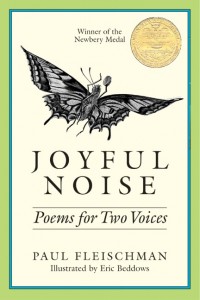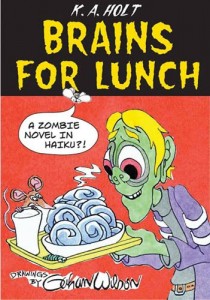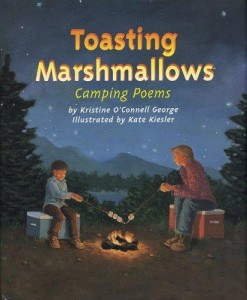Children have a natural affinity for poetry which begins with nursery rhymes and early language development. Some of the first words that children hear are poetry; nursery rhymes and lullabies are small poems. Many of the bedtime stories parents select to read are rhyming stories. As they enter school, children may begin to dislike some of the methods used to teach poetry. Teachers, who often don’t themselves appreciate poetry, teach poetry in isolation, as a separate unit. Even teachers who love poetry may have a negative effect because they introduce sophisticated poetry too early to children who are not ready for the complicated structure and imagery. It’s only natural that we often rebel against poetry when we are forced to memorize poems and analyze them to death. One form of poetry may be overemphasized when another form would be more enjoyable to the reader and children may not be allowed to choose poetry that appeals to them. Poetry comes in many different forms, from lyrics to a popular song to novels in verse, so there a poem available to match every child’s taste.
As they enter school, children may begin to dislike some of the methods used to teach poetry. Teachers, who often don’t themselves appreciate poetry, teach poetry in isolation, as a separate unit. Even teachers who love poetry may have a negative effect because they introduce sophisticated poetry too early to children who are not ready for the complicated structure and imagery. It’s only natural that we often rebel against poetry when we are forced to memorize poems and analyze them to death. One form of poetry may be overemphasized when another form would be more enjoyable to the reader and children may not be allowed to choose poetry that appeals to them. Poetry comes in many different forms, from lyrics to a popular song to novels in verse, so there a poem available to match every child’s taste.
A key to enjoying poetry is to read it aloud. Share poetry in small bursts of reading but also allow your child the opportunity to explore a particular poet in more depth, if desired.  Taste in poetry is very personal and poetry doesn’t always have to rhyme, so be sure that you don’t impose your own preferences on your young reader. Provide a broad array of poetry from which your child can select. Collections usually include a wide variety of styles and topics but also look at poetry books by individual poets.
Taste in poetry is very personal and poetry doesn’t always have to rhyme, so be sure that you don’t impose your own preferences on your young reader. Provide a broad array of poetry from which your child can select. Collections usually include a wide variety of styles and topics but also look at poetry books by individual poets.
Make reading poetry fun. Joyful Noise by Paul Fleischman is a wonderful example of choral reading that features boisterous and booming poems from the insect world. When your child is creating an original birthday card for a grandparent, encourage your child to write a poem or find one in a collection to include in the card. Greeting cards often include snippets of poetry (Remember “Roses are red, violets are blue. Sugar is sweet, and so are you?”). Look for novels in verse like Brains for Lunch: A Zombie Novel in Haiku?! by K. A. Holt that mix a more challenging form of poetry with a highly enticing topic. A lot of the fun of poetry is the word play so encourage your child to play with words and create silly rhymes to recite. Provide a thesaurus so your child can look up new words to express a feeling or image. Challenge your child to play games with different poetic forms like found poetry, where words that are found around you (on cereal boxes, signs, news headlines, etc.) are refashioned into a literary collage. Pair poetry with other activities. If you are going camping, share a poem from Kristine O’Connell George‘s Toasting Marshmallows. There is a poem for every topic so make poetry part of the fun!
Challenge your child to play games with different poetic forms like found poetry, where words that are found around you (on cereal boxes, signs, news headlines, etc.) are refashioned into a literary collage. Pair poetry with other activities. If you are going camping, share a poem from Kristine O’Connell George‘s Toasting Marshmallows. There is a poem for every topic so make poetry part of the fun!










